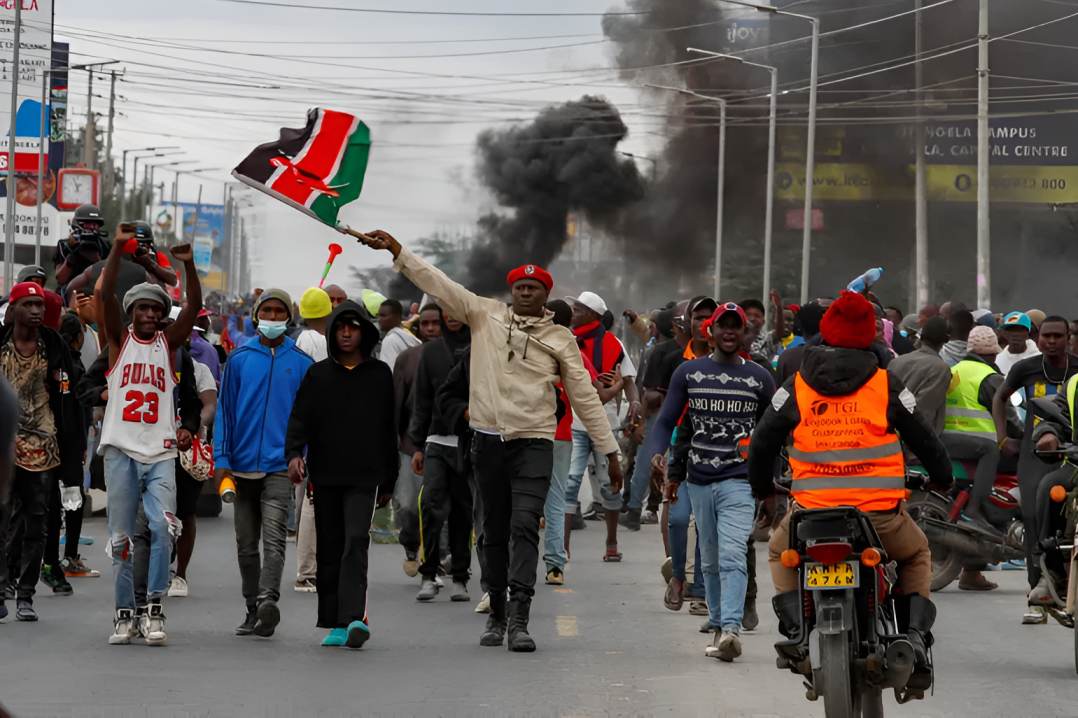Four filmmakers linked to BBC’s 'Blood Parliament' exposé detained

The filmmakers are currently being held at Muthaiga and Pangani police stations in Nairobi.
Four filmmakers linked to the controversial BBC documentary Blood Parliament have been arrested in Nairobi, drawing condemnation from press freedom advocates.
The arrests took place early Saturday morning. Three filmmakers, Nicholas Gichuki, Brian Adagala, and Mark Karubiu, were taken into custody at their studio in Karen, Nairobi. The identity of the fourth filmmaker remains unconfirmed.
The filmmakers are currently being held at Muthaiga and Pangani police stations in Nairobi.
The filmmakers are connected to the Blood Parliament exposé piece, which investigates the deaths of anti-tax protesters during a demonstration outside Kenya's Parliament in June 2024.
The documentary, produced by BBC Africa Eye, details police violence during the protest, with a focus on the killing of University of Nairobi student Eric Shieni.
While the filmmakers have not been officially charged, their arrests have raised alarms about the government's growing efforts to suppress critical media coverage of security force actions.
The filmmakers were reportedly detained as part of ongoing investigations into the filming and distribution of the documentary.
This move follows the Kenyan government's decision to block a planned public screening of the BBC documentary on Monday, which had already sparked a nationwide debate.
The documentary reveals how police allegedly opened fire on peaceful protesters, killing and injuring several people.
The death of Shieni, who was shot while leaving the protest grounds, is a central focus of the investigation.
In the film, BBC Africa Eye claims to have reviewed over 150 images captured before and after the shooting of Shieni.
According to the network, they were able to identify the officer responsible for his death.
The officer’s name has not been officially disclosed, but images of him have circulated widely online.
The BBC report suggests the officer was part of the Kenya Defence Forces (KDF), though the military has denied any involvement.
The arrests of the filmmakers have drawn widespread criticism, with rights groups calling it an attack on media freedom and free expression.
Human rights organizations have expressed concern that the actions of the government reflect an attempt to silence journalists and filmmakers investigating sensitive political matters.
"This arrest seems to be an attempt to intimidate those who are merely doing their job as journalists and filmmakers," said a spokesperson for a local media rights group.
"It is a disturbing sign that the government is willing to go to great lengths to prevent the truth from being told."
The timing of the arrests has raised questions about the government’s commitment to press freedom.
Only days before, the Kenyan authorities intervened to prevent the screening of the documentary, sparking a fresh round of protests over police conduct during the June protests.
In response to the arrests, the BBC expressed concern for the safety and well-being of the filmmakers.
"We are deeply concerned by these actions and continue to call for the freedom of the press in Kenya," the network said in a statement.
